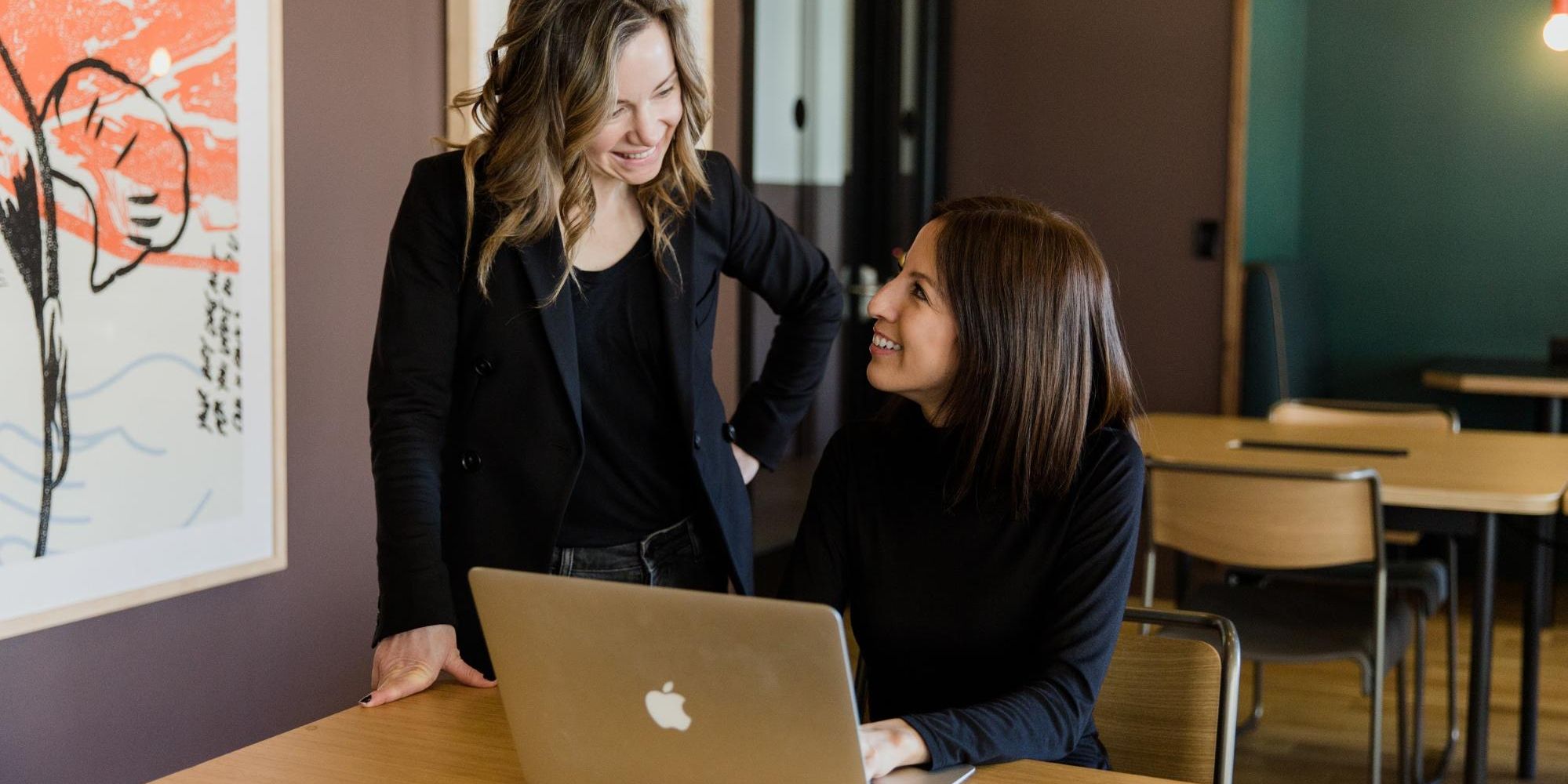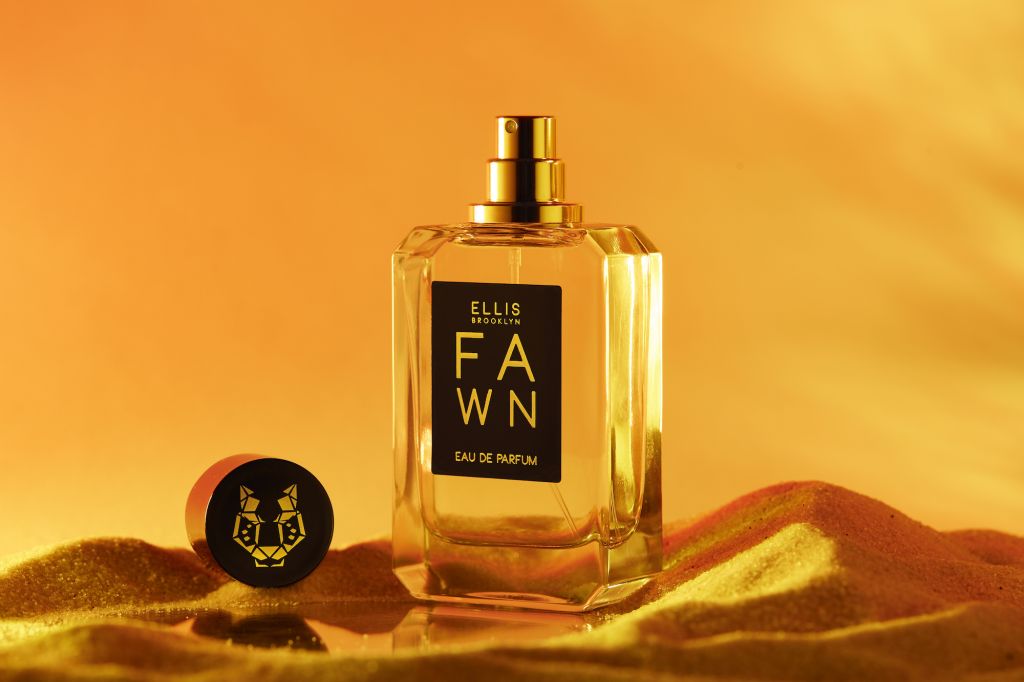
Strategic Angel Tina Bou-Saba Talks Early Stage Investment In The Beauty Space
With multi-million dollar cash infusions continuing to roll in at a fevered pace, beauty remains an exciting place to be a brand founder. For beauty bosses, this excitement comes with a myriad of questions. Beauty neophytes turned founders still learning the ins-and-outs of contract manufacturing now feel compelled to understand the intricacies of investing, a process that can be bewildering for those without a finance background (read: most beauty entrepreneurs).
As a strategic angel investor in beauty and other consumer verticals, Tina Bou-Saba regularly sees pitches from early stage beauty companies. “[Beauty] attracts a lot of really talented entrepreneurs,” she explains, adding, “Because barriers to entry to get a small beauty company off the ground are relatively low, it makes for a very competitive environment [with] lots of new brands in this space.”
Bou-Saba, whose portfolio includes beauty brands Volition Beauty, Mented Cosmetics and Ellis Brooklyn as well as apparel players TomboyX underwear and luxury fashion rental company Armarium, spoke to Beauty Independent about what piques her interest in possible investments and how emerging brands should ready themselves for investors.
As an investor, what do you look for in brands?
Because I’m looking at very early stage companies, I’m many times evaluating the founder, or group of founders, with an idea. I don’t at all view not knowing the industry as necessarily a negative. I have a sense of where there might be white space, so there are definitely pitches and ideas I will hear [and] think, “I see where they’re going with this. I can see how they might be able to acquire customers for this business.”
The customer acquisition piece is, generally speaking, harder than the product development piece. Brand building is hard. Acquiring customers is hard. So, what I really look for, first and foremost as an angel, whether we’re talking about beauty or any other consumer category, is the founder or founders. I’m looking for what I would call entrepreneurial leadership: someone who is creative, really passionate, laser-focused on the consumer, on who their customer might be.
At the beginning, you have to get your arms around [the customer]. Figure out who she or he is and how are [you] going to reach them. I look for someone who is excited about that and understands that this is so much more than just developing products, this is really about building a brand. How are you going to speak to that customer? Because you need to start with a core audience and get them on board as your evangelists and build it out from there. Some brands have done such a great job of this.
For me, at the very early stage, it’s that combination of a founder who I liked, who I view as super passionate, open-minded, creative, willing to learn, willing to take in information, listen and adjust as necessary.
What kind of role do you take once you invest in the company. Is it typical of other angel investors?
This is really important to me. Because I’ve worked in the consumer space for a long time, and I feel I have a good strategic understanding of this space, I want to invest in companies where I can be a value-added investor. That is certainly not the case for all angel investors, and there’s no right or wrong or good or bad, but I want to be involved with companies where I can have some — even small — positive impact on the trajectory of the company. It’s personally rewarding for me. I look for founders where I feel we could work productively together and where I could be an informal advisor. That is a role that I really enjoy.
It depends on the level of experience of founders, but I would really encourage, especially newer founders or people who may have worked at a larger company and want to start their own company, to find investors who want to be value add. There’s so much to do, being able to pick up the phone and say, “We’re talking to Sephora, we’re just not sure if we should do x, y, or z,” is so helpful. Or even earlier, “Can you take a look at our pitch book? We’re going to present at a pitch event.” You should find people who can help with things like that.
I have my network of angels that I know who have similar interests to me. I think it can be helpful, from a capital raising perspective, to have investors who can potentially connect you with other investors. That can be really helpful in terms of efficiency.
What is the difference between angel investors and family offices?
Individual angel investors, someone like me, are investing really early in companies. Either they’re just launching products or even before they have a product. Across industries, angels are the earliest investors.
There’s an expression, “If you know one family office, you know one family office.” They all operate so differently. Generally speaking, family offices are looking to write larger checks [and] are investing a little bit further along, when there’s a real business there. That might be a seed round, which would be $1 million, $2 million, after the angels, or it could be further [along] and more like a series A round, where the company is raising $5 million to $10 million. I’m sure there are some family offices or even individuals affiliated with them who may do angel investing, but typically they would be a little further along, when there is proof of concept, and the company is up and running and looking for funds to scale.
Do these types of investors — angels, family offices — take minority stakes in companies?
Most of these investments would be minority stakes. Even a venture fund would typically be targeting around 20% stakes in companies. As an angel investor, if you’re investing super early on, you may have half a percent of the company. It’s very small. If it works, that could be half a percent of a lot.

If a brand is thinking of pitching angel investors, how should they prepare?
First thing is practice, practice, practice. Once you’ve done your pitch 20 times, it starts to get easy and comfortable. But, in the beginning, especially if it’s a founder who hasn’t done this before, it’s hard, like any new business presentation. Whether it’s over a casual coffee or in a more formal setting, you still want to have your pitch tight.
Let’s say a company hasn’t launched yet. It’s extremely important for the founder to have a view on who is [the] customer. Who is going to be buying [our] product, and how are we reaching him or her? What is our strategy for that? What is the the look, feel and vibe of the brand, and how [does] that connect to the customer acquisition strategy?
The go-to market strategy, what are the specific plans for that? How are they thinking about marketing [and] distribution? Is this going to be direct to consumer? Are they thinking retail? How am I going to experience it as a consumer? Having a clear vision for all those things and having a deck that someone can look at and understand the founder’s vision is extremely important. It doesn’t need to be super long. You need to be tight.
Great advice that I got a long time ago [is]: There are going to be people in your professional network who are friendly meetings. You can go into them, ask for advice, be open [and say], “I don’t understand this,” “I’m thinking about this,” “Do you think I should do this or this?” Those are your friendly meetings. Then, there are people in your professional network, it’s not that they’re unfriendly, but they’re potential investors or potential partners. Those are not the meetings that you should go into expressing uncertainty. Figure out who your friendly meetings are going to be and use those as your practice, and save the ones where you really want something for when you’re ready. That’s an important distinction. Leverage your network as much as you can to get the advice that will be helpful to you.
That is for pre-revenue. Then, there are companies where a founder may have the resources to bootstrap the company to get it up and running. He gets a basic product and a basic brand going on a small scale through [his] own resources or maybe through a little bit of friends and family support.
In that case, it’s a little different. Meetings with potential angel investors are going to center around basic questions like: How the business is going so far? What is your customer retention rate? How much of your business is repeat customers? How much are you spending to acquire customers? What are you seeing in terms of their purchase patterns? What are you seeing in terms of customer referrals? It’s still early, so, as an investor, you can’t extrapolate too much from that because in the beginning there can be a lot of word of mouth that gets harder as time goes on.
Of course, [investors] want to understand the basic unit economics of the business. What are you selling this for? What’s your margin? Where are you making it? Who’s shipping it? The basic fundamentals of how the business is being executed.
Do you think brands need to bring in professional help to put brand decks together?
It’s a lot easier for [investors] to get their arms around a business when they can grasp it visually. Sometimes companies will hire a designer to help them get their deck together. We don’t want to judge a book by its cover, this is true for anyone evaluating investments. Sometimes you can be entranced by something that looks really slick. That doesn’t mean that it’s big business. Nonetheless, it’s important to have a professional looking pitch deck. Investors are seeing so many of them. You want yours to be up to par.
How about preparing financials?
It depends on the founder’s experience level, but [for] companies that are doing anywhere from a few hundred thousand to a million dollars a year in sales, if a founder doesn’t have some sort of financial background, they would use an outsourced CFO, a consultant to help them clean up the [financial] model, help them with forecasting. Those are things that, when you do something for the first time, you’re having to figure it all out. Tap your network, talk to other entrepreneurs. Just like someone will know a Facebook marketing agency, someone is going to know a part-time CFO who can help you. At a certain point, have your financials in such a way that an investor feels comfortable how they’re being managed. It can be helpful to have an outside resource on a consulting basis to help.
What are some important investment contract terms? Could you give a numerical example?
The discount rate and the valuation cap [are] very important because those determine how much equity the early stage investors will get in the next round of financing. For example, $5 million is often a standard valuation cap, at least in consumer [goods], for a very early stage company who’s raising money to get off the ground.
Let’s say a company raises $500,000 from individual investors who write $25,000 and $50,000 checks at a $5 million valuation, and the business gets off the ground. They’re growing nicely. They do a few hundred thousand dollars in sales their first year, and they’re expecting to do a million dollars in sales in the next year, and they need to raise more money to support that sales growth. If they did their first round at the $5 million valuation cap, let’s say they go out and try to raise money, and they say that the company’s worth $10 million, and they raise a few million dollars at that valuation. That means the investors who were part of the note with a $5 million valuation cap get to convert into equity in the next round [of fundraising] at the $5 million cap as opposed to the $10 million. They get to buy shares at that lower price as opposed to the $10 million price.
Instead, let’s say the company was only able to get a $6 million valuation [in the] next round. In that case, the 20% [the increase in valuation from $5 million to $6 million] discount would apply. The initial investors would be buying shares at a 20% discount in the next round. The point of those terms is to reward your early investors with the ability to convert into equity at an advantageous share price in future rounds, with the idea being that if a company is producing hardy growth, you assume their paper valuation is increasing. So, when they do another round, let’s say an institutional seed round, the investors who were in the convertible note [round] would be converting their notes into equity at a lower price than [investors coming in in] subsequent rounds. Generally speaking, that’s the trajectory you would want as an early stage investor.
Y Combinator has excellent resources available on their website that explain all of these things, and they have standard templates. If a founder doesn’t have experience in fundraising, they could go to like a website like that or Cooley. There are good resources that explain it all. And, of course, lawyers as well.
How many times should an entrepreneur reach out to an investor? Can they expect responses or is no response the response?
Personally, I like to give feedback to entrepreneurs even if it’s not something I’m going to invest in. I’m really sensitive to how much work it is to launch and run a company. As an early stage investor, I would never ask for multiple meetings with an entrepreneur if I’m not very, very seriously considering investing. I’m happy to sit down with someone to talk about their business and give them my feedback and ideas. I view it as a privilege because I always learn something about the market that an entrepreneur is seeing that I may not know.
For entrepreneurs, if you emailed or contacted a potential investor twice, and you haven’t heard a response, that probably means they’re not interested. But investors across all stages are really busy, so I wouldn’t give up after once because it is very possible that they didn’t see it or they forgot to write you back.
There is definitely a payoff to persistence. You hear this all the time on the retail partnership side, too. A brand tries many, many times with buyers, and it’s just because they’re seeing 100, 200 brands. So, be polite, use graciousness in your communications, but investors are seeing so many incomings, I think there’s nothing wrong with staying on their radar.
Hear more from Bou-Saba and some of the most influential and relevant voices in the investment community, including beauty-focused angel investors, at BeautyX Capital Summit, Aug. 20-21 in New York City.





Leave a Reply
You must be logged in to post a comment.